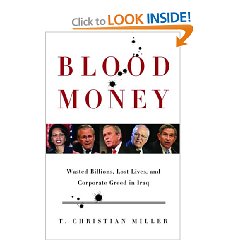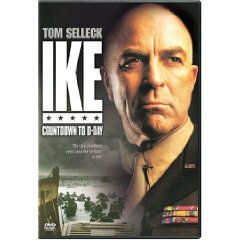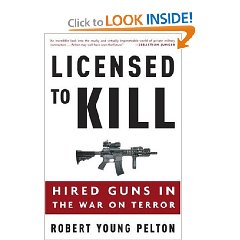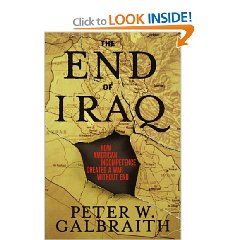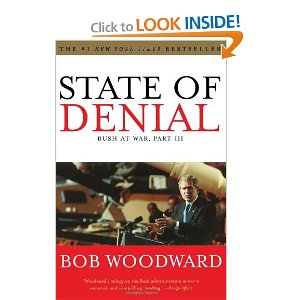
![]() Stake in the Heart of the W Presidency
Stake in the Heart of the W Presidency
October 4, 2006
Bob Woodward
Here are the highlights I drew out that make this book extraordinary and worth reading even if it leaves one with a political hang-over:
1) The Federal Government is broken, and was made worse by a President who knew nothing of foreign policy, a Vice President who closed down the inter-agency policy system, and a Secretary of Defense who was both contemptuous of the uniformed military and held in contempt by Bush Senior.
2) My opinion of the Secretary of Defense actually went UP with this book. Rumsfeld has clearly been well-intentioned, has clearly asked the right questions, but he let his arrogance get away from him. Given a choice between Admiral Clark, a truth-telling transformative person, and General Myers, an acquiescent warrior diminished to senior clerk, Rumsfeld made the right choice for his management style, and the wrong choice for the good people in our Armed Forces. I *like* Rumsfeld's Anchor Chain letter as it has been described, and wish it had been included as an Appendix. Rumsfeld got the control he wanted, but he sacrificed honest early warning in so doing.
3) This book also improves my opinion of the Saudis and especially Prince Bandar. While I have no tolerance for Saudi Royalty–the kind of corrupt debauched individuals that make Congressman Foley look like a vestal virgin–the Saudis did understand that Bush's unleashing of Israel was disastrous, and they did an excellent job of shaking up the President. Unfortunately, they could not overcome Dick Cheney, who should resign or be impeached for gross dereliction of duty and usurpation of Presidential authority.
4) Tenet's visit to Rice on 10 July is ably recounted and adds to the picture. It joins others books, notably James Risen's “State of War,” “Hubris,” FASCO” and “The End of Iraq in presenting a compelling picture of a dysfunctional National Security Advisor who is now a dysfunctional Secretary of State–and Rumsfeld still won't return her phone calls…..
5) The author briefly touches on how CIA shined in the early days of the Afghan War (see my reviews of “JAWBREAKER” and “First In” for more details) but uses this to show that Rumsfeld took the impotence of the Pentagon, and the success of CIA, personally.
6) The author also tries to resurrect Tenet somewhat, documenting the grave reservations that Tenet had about Iraq, but Tenet, like Colin Powell, failed to speak truth to power or to the people, and failed the Nation.
7) Rumsfeld recognized the importance of stabilization and reconstruction (and got an excellent report from the Defense Science Board, not mentioned by this book, on Transitions to and From Hostilities) but he vacillated terribly and ultimately failed to be serious on this critical point.
8) This book *destroys* the Defense Intelligence Agency, which some say should be burned to the ground to allow a fresh start. The author is brutal in recounting the struggles of General Marks to get DIA to provide any useful information on the alleged 946 WMD sites in Iraq. DIA comes across as completely derelict bean counters with no clue how to support operators going in harms way, i.e. create actionable intelligence.
9) Despite WMD as the alleged basis for war, the military had no unit trained, equipped, or organized to find and neutralize WMD sites. A 400 person artillery unit was pressed into this fearful service.
10) General Jay Garner is the star of this story. My face lit up as I read of his accomplishments, insights, and good judgments. He and General Abizaid both understood that allowing the Iraqi Army to stay in being with some honor was the key to transitioning to peace, and it is clearly documented that Dick Cheney was the undoing of the peace. It was Dick Cheney that deprived Jay Garner of Tom Warrick from State, the man who has overseen and understood a year of planning on making the peace, and it was Dick Cheney that fired Garner and put Paul Bremer, idiot pro-consult in place. Garner clearly understood a month before the war–while there was still time to call it off–that the peace was un-winable absent major changes, but he could not get traction within the ideological fantasy land of the Vice Presidency.
11) Apart from State, one military officer, Colonel Steve Peterson, clearly foresaw the insurgency strategy, but his prescient warnings were dismissed by the larger group.
12) General Tommy Franks called Doug Feith “the dumbest bastard on the planet,” –Feith deprived Garner of critical information and promoted Chalabi as the man with all the answers.
13) The author covers the 2004 election night very ably, but at this point the book started to turn my stomach. The author appears oblivious to the fact that the Ohio election was stolen through the manipulation of 12 voting districts, loading good machines in the pro-Bush areas, putting too few machines in the pro-Kerry areas, and in some cases, documented by Rolling Stone, actually not counting Kerry votes at all on the tallies. Ohio has yet to pay, as does Florida, for its treasonous betrayal of the Republic.
Today I issued a press release pointing toward the Pakistan treaty creating the Islamic Emirate of Waziristan as a safehaven for the Taliban and Al Qaeda as the definitive end–loss of–the war on terror, which is a tactic, not an enemy. As Colin Gray says in “Modern Strategy,” time is the one strategic variable that cannot be bought nor replaced. As a moderate Republican I dare to suggest that resigning prior to the November elections, in favor of John McCain, Gary Hart, and a Coalition Cabinet, might be the one thing that keeps the moderate Republican incumbents, and the honest Democrats–those that respect the need for a balanced budget–in place to provide for continuity in Congress, which must *be* the first branch of government rather than slaves to the party line.
It's crunch time. This book is the last straw. The American people are now *very* angry.


